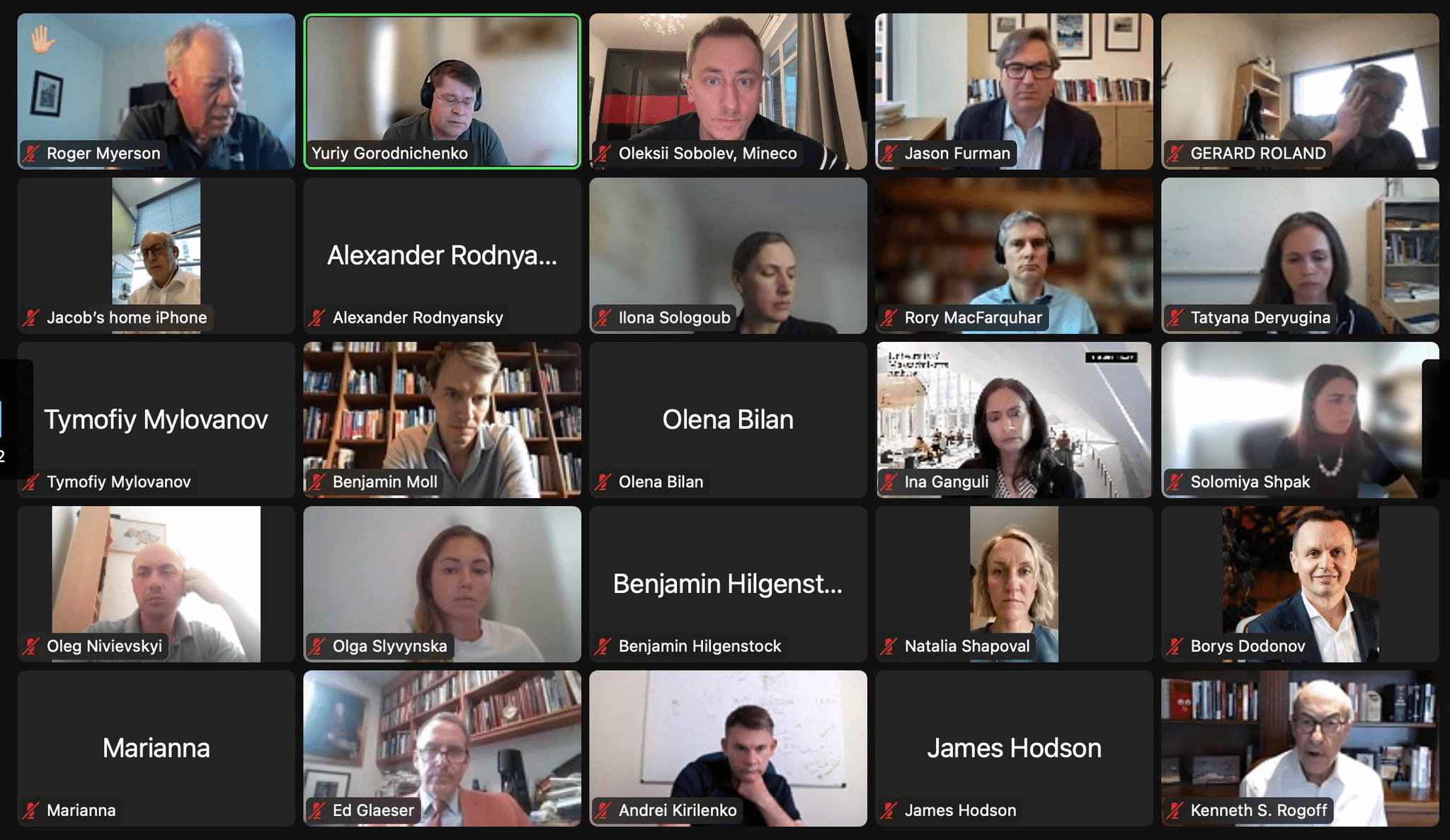- Kyiv School of Economics
- About the School
- News
- KSE Supports the Meeting of the Economic Policy Advisory Council under the Ministry of Economy on the strategy for Ukraine’s recovery
KSE Supports the Meeting of the Economic Policy Advisory Council under the Ministry of Economy on the strategy for Ukraine’s recovery
20 Вересня 2023

Kyiv School of Economics organized and supported the meeting of the Economic Policy Advisory Council under the Ministry of Economy of Ukraine, which included 24 international economists, including Tymofiy Mylovanov, President of KSE. The meeting focused on the strategy and architecture of recovery as well as the necessary reforms.
Council members unanimously highlighted the need for coordinating donor assistance and for developing a unified, coherent stance from the international community to support Ukraine’s reconstruction. They emphasized that Ukraine itself should set the priorities for the recovery process. Effective reconstruction calls for a comprehensive strategy encompassing the architecture of recovery, the sequence of reforms, and financing mechanisms.
“The rapid recovery and development of Ukraine pose challenges not only for our country but also constitute a major project for the civilized world. The Advisory Council under the Ministry of Economy has evolved into a robust expert body, assembling leading economists, professors from Western and Ukrainian universities, and Nobel laureates. The group’s work will be instrumental in fully unlocking the potential of our economy,” said Oleksii Sobolev, First Deputy Minister of Economy of Ukraine.
The EU’s Ukraine Facility program is slated to provide EUR 50 bn in financial support over four years. The implementation of the Ukraine Plan, being developed by the Government in consultation with the EU, is expected to advance Ukraine’s European integration and spur economic growth.
Nonetheless, the level of support planned under this program won’t fully meet the requirements for sustainable recovery, as the majority of the funds (EUR 39 bn) will target macro-financial needs. According to preliminary estimates, the budget deficit for 2023 alone is projected to reach around EUR 40 bn. Thus, securing additional funding remains a key priority.
“Ukraine’s recovery strategy must explicitly convey a key principle: returning to the status quo is insufficient. The plan should aim to rebuild better than before the devastation occurred. Setting clear objectives, identifying funding sources, and outlining procurement procedures are essential preconditions for attracting both donors and the private sector to the state’s reconstruction and development,” stated Yuriy Gorodnichenko, Quantedge Presidential Professor of Economics Department of Economics, University of California, Berkeley.
Among potential funding sources, the option of confiscating Russian assets was explored. Some group experts stressed the urgency of this step for meeting reconstruction needs, although they acknowledged that the pace of confiscation might not be sufficient to address immediate requirements.
With most support from governmental donors and international organizations earmarked for essential expenses, the group concurred that mobilizing private sector funding is crucial for sustaining economic growth. Creating a business-friendly environment and facilitating loan access from Ukrainian banks are key to achieving this goal.
The meeting also touched on other significant measures, including judicial reform and ongoing decentralization. Judicial reform will notably promote healthy competition, while further decentralization is critical for regional recovery and development.
The Advisory Council was formed at the initiative of Vice Prime Minister and Minister of Economy of Ukraine, Yulia Svyrydenko. The new advisory body under the Ministry of Economy comprises leading global economists, university professors, and CEOs of international companies. The Council is chaired by Yuriy Gorodnichenko, Quantedge Presidential Professor of Economics Department of Economics, University of California, Berkeley. Kyiv School of Economics provides organizational support for the group.
